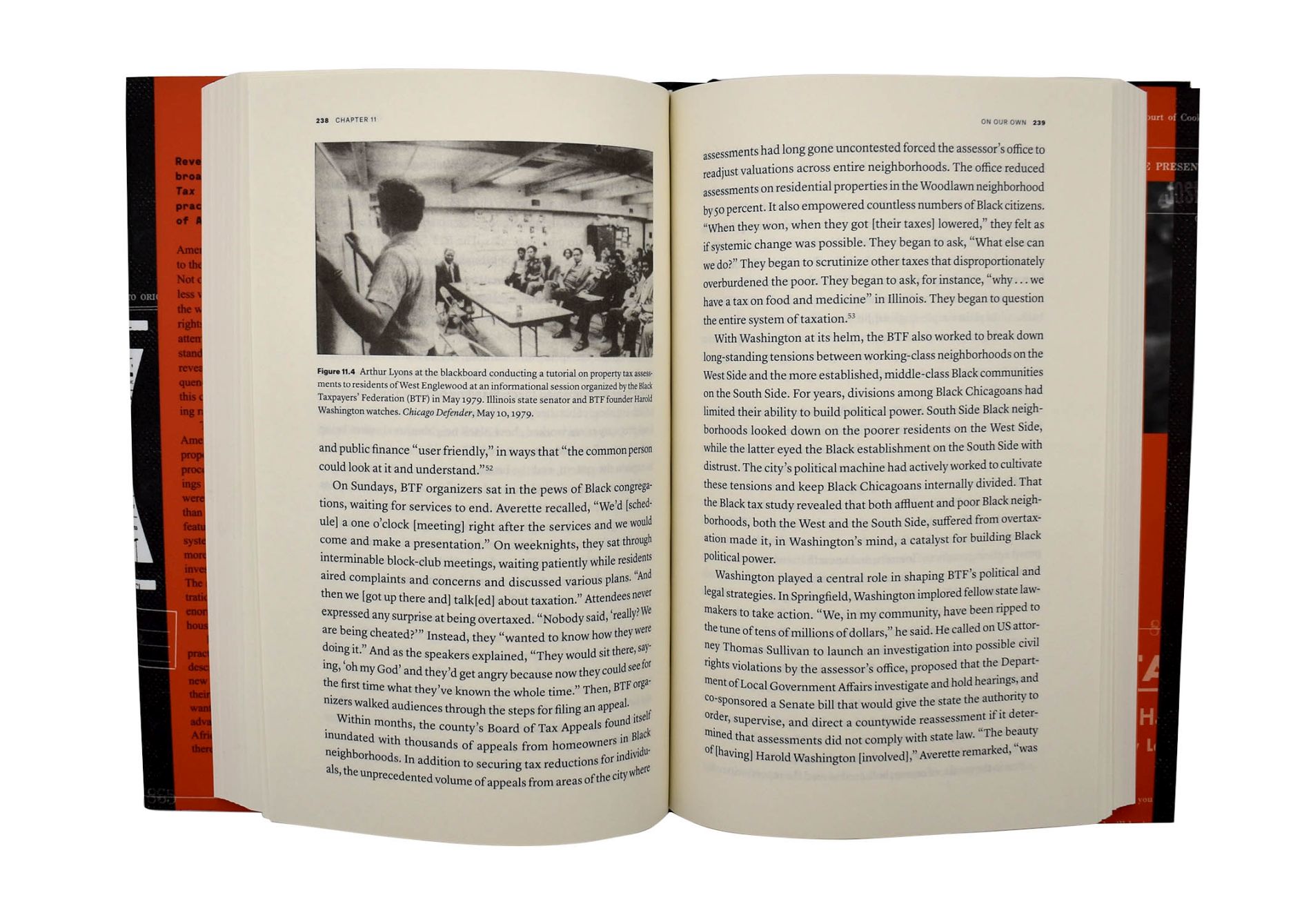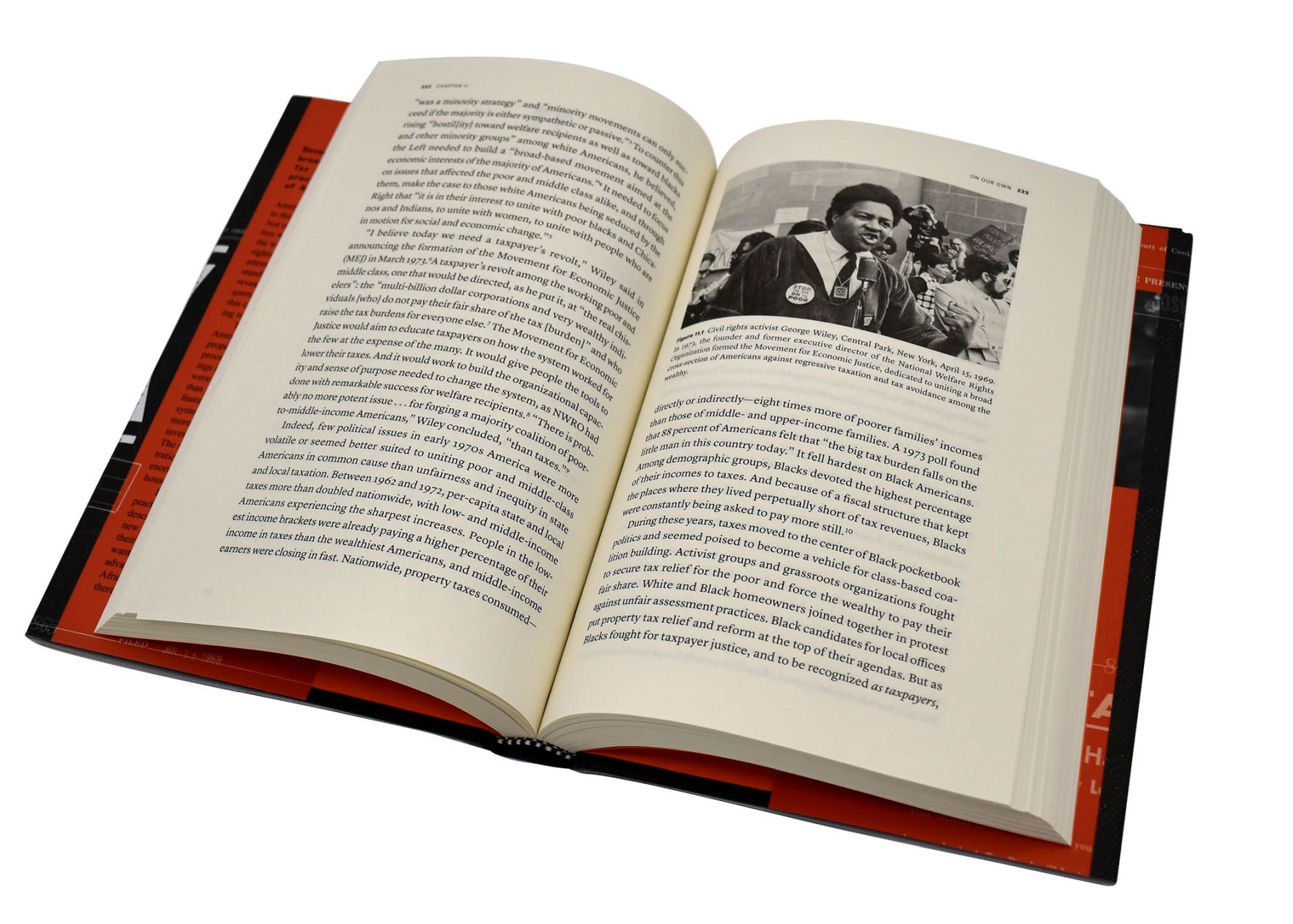The Black Tax
150 Years of Theft, Exploitation, and Dispossession in America
9780226840185
9780226730592
9780226730622
The Black Tax
150 Years of Theft, Exploitation, and Dispossession in America
Revealing a history that is deep, broad, and infuriating, The Black Tax casts a bold light on the racist practices long hidden in the shadows of America’s tax regimes.
American taxation is unfair, and it is most unfair to the very people who critically need its support. Not only do taxpayers with fewer resources—less wealth, power, and land—pay more than the well-off, but they are forced to fight for their rights within an unjust system that undermines any attempts to improve their position or economic standing. In The Black Tax, Andrew W. Kahrl reveals the shocking history and ruinous consequences of inequitable and predatory tax laws in this country—above all, widespread and devastating racial dispossession.
Throughout the twentieth century, African Americans acquired substantial amounts of property nationwide. But racist practices, obscure processes, and outright theft diminished their holdings and their power. Of these, Kahrl shows, few were more powerful, or more quietly destructive, than property taxes. He examines all the structural features and hidden traps within America’s tax system that have forced Black Americans to pay more for less and stripped them of their land and investments, and he reveals the staggering cost. The story of America’s now enormous concentration of wealth at the top—and the equally enormous absence of wealth among most Black households—has its roots here.
Kahrl exposes the painful history of these practices, from Reconstruction up to the present, and tells, for the first time, the story of Black Americans’ experiences as taxpayers and their fight for a more fair and equitable system for raising and spending the public’s money. This is a history that deepens our understanding of the disadvantages and persistent inequalities that African American households continue to face and reveals hidden engines of economic inequality in America. Detailing the hows and whys of America’s profoundly unequal tax system, The Black Tax equips readers with the knowledge needed to combat inequality and injustice today.
American taxation is unfair, and it is most unfair to the very people who critically need its support. Not only do taxpayers with fewer resources—less wealth, power, and land—pay more than the well-off, but they are forced to fight for their rights within an unjust system that undermines any attempts to improve their position or economic standing. In The Black Tax, Andrew W. Kahrl reveals the shocking history and ruinous consequences of inequitable and predatory tax laws in this country—above all, widespread and devastating racial dispossession.
Throughout the twentieth century, African Americans acquired substantial amounts of property nationwide. But racist practices, obscure processes, and outright theft diminished their holdings and their power. Of these, Kahrl shows, few were more powerful, or more quietly destructive, than property taxes. He examines all the structural features and hidden traps within America’s tax system that have forced Black Americans to pay more for less and stripped them of their land and investments, and he reveals the staggering cost. The story of America’s now enormous concentration of wealth at the top—and the equally enormous absence of wealth among most Black households—has its roots here.
Kahrl exposes the painful history of these practices, from Reconstruction up to the present, and tells, for the first time, the story of Black Americans’ experiences as taxpayers and their fight for a more fair and equitable system for raising and spending the public’s money. This is a history that deepens our understanding of the disadvantages and persistent inequalities that African American households continue to face and reveals hidden engines of economic inequality in America. Detailing the hows and whys of America’s profoundly unequal tax system, The Black Tax equips readers with the knowledge needed to combat inequality and injustice today.
Reviews
Table of Contents
Introduction
Part I: Jim Crow’s Fiscal Order
1. Unaccountable
2. Across the Tracks
3. Taken
Part II: Black in the Metropolis
4. Captives
5. Disservice
6. Laboratories of Predation
Part III: A Local Struggle
7. Citizens and Taxpayers
8. Black Power/Local Power
9. Emergency
Part IV: Age of Revolts
10. Losing Hands
11. On Our Own
12. Horror Stories
Part V: Neoliberalism at Home
13. Starved
14. Charged
15. Debt Pays
Conclusion
Acknowledgments
Notes
Illustration Credits
Index
Part I: Jim Crow’s Fiscal Order
1. Unaccountable
2. Across the Tracks
3. Taken
Part II: Black in the Metropolis
4. Captives
5. Disservice
6. Laboratories of Predation
Part III: A Local Struggle
7. Citizens and Taxpayers
8. Black Power/Local Power
9. Emergency
Part IV: Age of Revolts
10. Losing Hands
11. On Our Own
12. Horror Stories
Part V: Neoliberalism at Home
13. Starved
14. Charged
15. Debt Pays
Conclusion
Acknowledgments
Notes
Illustration Credits
Index
Awards
Urban History Association: Kenneth Jackson Award
Honorable Mention
Urban History Association: Lizabeth Cohen Prize
Co-winner
Los Angeles Times: Los Angeles Times Book Prizes
Finalist
The Order of the Coif: Order of the Coif Book Award
Co-winner




